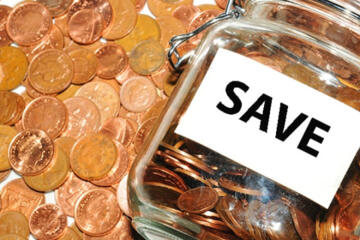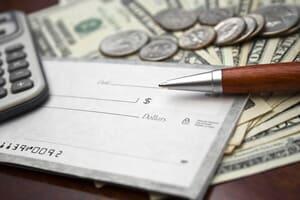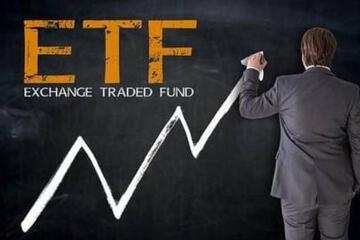Buying a home is a big decision for anyone. It’s usually the most expensive thing you own. Most people don’t own anything more valuable than their homes. Even the deposit payment can be the biggest single amount you’ve paid out so far – so you need to be sure you’re doing the right thing. For a first time home buyer, this might be a scary experience.
For decades we’ve all been told that home ownership is important because it gives your life stability. You’ll always have somewhere to live, plus it’s an investment over time – one you can cash in on later in life. House prices have been increasing nicely in recent years, and for those lucky enough to have bought a couple decades ago, prices have jumped massively.

You still have to factor in inflation, which means the buying power of a set amount of cash (for example, $100) goes down slowly over time as goods and services (the cost of living) becomes more expensive. As long as the house price goes up by more than the rate of inflation though, you’re coming out on top.
All of this sounds great, right? No rent payments, mortgage payments are towards your investment vehicle, and you’re secure in a place you own, answerable to nobody. That doesn’t mean it’s all positives though. All first time home buyers should consider their moves carefully before plunging into the property market.
When to Buy Your First Home
The best time to buy isn’t as soon as possible, no matter what people say. You might end up rushing into a bad buy, then if your circumstances change you might not be able to afford it anymore. This can cost you the house, your deposit, and your credit rating.
You need to be sure that you can afford the deposit and mortgage payments while still maintaining your emergency fund and other expenses. Consider how you would deal with situations like the loss of a job, or needing to funnel cash elsewhere like car repairs or medical bills. Don’t forget that stuff can go wrong with the house too – you might need repairs there, or the place might need some work doing before you can move in. Keep all of this in mind!
It’s also a bad idea to buy just because you feel something is a good deal, or because you’re worried that prices will rise soon. Prices will always fluctuate but they don’t make big jumps very often, so you won’t lose out much. It’s better to wait until you’re financially prepared for homeownership.
Money isn’t the only investment you might need either. Ownership means you’re responsible for making all arrangements for repairs, doing maintenance and more. You have to be organized enough to deal with all of this.
First time home buyers need to keep all of these points in mind. Oh and don’t forget, home ownership also locks you into a property/location for a while. That means you need to decide whether this is going to be your long term location before signing on the dotted line. It’s a much longer process to sell up and move than it is to switch from one rental to another!
What to Look For
“Well, I guess this one will do” – this attitude is fine when choosing food or a parking space, but it’s not the attitude to take with a house. Yet first time home buyers make this mistake so often!
Know what you want up front and be as picky as you need to be. Make sure you find somewhere that’s just right for you, even if that means waiting for new properties to enter the market.
Decide beforehand how much space you need. Choose a few areas where you’d like to live as well, and do your scouting in the local neighborhood, what services are nearby and even access to schools and medical facilities. You should know how many bedrooms and bathrooms you want before you even start looking at houses.
Have a think about extra features too. Do you want a big garden? A driveway and/or garage? Do you have a need for powerful heating or A/C units because of the climate? Other factors include the layout of the house, exterior features (sheds, pools, a porch), and interior features (the types of flooring & worktops you want, which kitchen fittings are needed, a basement or attic).
In your mind, you should be able to visualize the perfect house. From there, shop around and see how close you can get to your dream place. Some will be tantalizingly close, only to be missing one key feature. Don’t compromise though, keep looking and you’ll eventually find somewhere which ticks all the boxes.
Once you find a place, make sure you have it inspected and checked as deeply as possible. You need to be sure there are no hidden problems. If the place is being sold as a fixer-upper, make sure you get a quote on the repairs beforehand and talk to a professional about any complications that might occur. Plenty of people have been caught out by spiraling costs and persistent problems, costing them a fortune over time.
Ideally, you want someplace that’s been well maintained and is structurally sound. Any wiring, insulation, boilers and other features should also be checked because these need replacing after a while – and that’s much more expensive than checking them upfront.
Negotiating the Sale
Once you’ve got a house in mind (and preferably a mortgage limit pre-agreed) it’s time to negotiate the sale. Your room for negotiation can vary a lot. If the house is a hot property with lots of interest, you might have no room at all to negotiate – in fact, some people will bid over the sale price to try and steal the deal.
If there isn’t much interest though, and you have other options, then it’s definitely worth negotiating. Speak to the estate agent and try to get a feel for how badly the seller wants to sell. Be careful that you don’t give away too much information about yourself here. Don’t tell the agent that you’re in need of the place ASAP or that you’ll pay whatever is asked. You want to squeeze the deal because even a 0.5% price change is huge when it comes to property.
Once you’ve got the price settled, including any checks that need to be done, it’s time to close the deal and complete the handover. At this stage, you should congratulate yourself on a successful purchase. See, it isn’t THAT complicated being a first time home buyer!
Disclaimer: Our service is not intended to be, nor should it be construed as financial advice. We help our readers make informed decisions via impartial information and guides. Where appropriate, we may introduce partner companies who can provide services relating to financial products.








